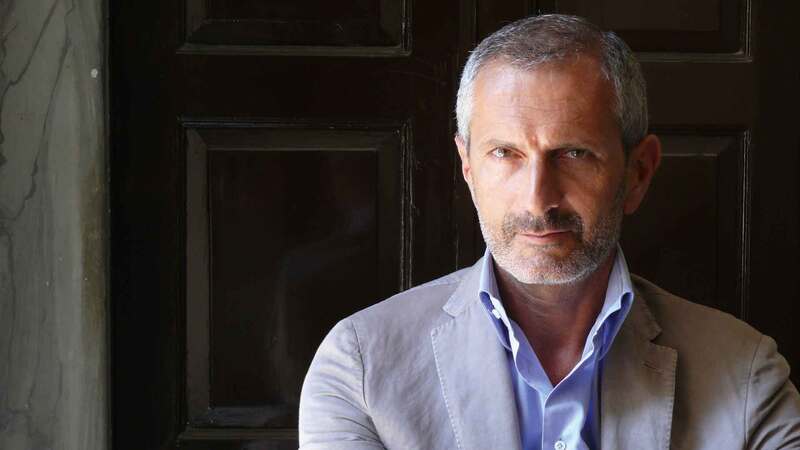You are viewing your 1 free article this month. Login to read more articles.
Holding and Daley use platforms to take sport titles into new territory
Some of the loudest cheers for Tom Daley’s recent Olympics success undoubtedly came from the HQ offices. The HarperCollins division, after all, signed up the Team GB diver in March for a new memoir, with Coming up for Air due to be released on this year’s Super Thursday (14th October). But Daley’s book is perhaps a good case study for how much the sport market has changed. The title was initially acquired and is being marketed as not necessarily a sport book per se, but something deeper, as it will focus on the pressures of fatherhood and family, Daley’s sexuality, and his trying to reclaim the media narrative around that sexuality. Yes, the gold and bronze medals he won at the delayed 2020 games will help at the tills, but given Coming up for Air’s focus, it would probably have done well even if Daley had come away from Tokyo empty-handed.
One person who knows quite a bit about the changing sport market is Ian Marshall, Simon & Schuster deputy publishing director for non-fiction. While Marshall has published widely across non-fiction over the course of his nearly 30-year career, sport is a passion. At S&S he has brought out titles by the likes of Torvill and Dean, Arsenal star Dennis Bergkamp, Premier League referee Howard Webb and racing legend Nigel Mansell, as well as working with William Hill Sports Book of the Year-winning authors such as Harry Pearson and Donald McRae.
Marshall believes the market had been changing gradually for some time, with today’s roots going as far back to Nick Hornby’s Fever Pitch (1992), which in some ways intellectualised football and “made it respectable for the middle classes”, and Tony Adams’ Addicted (1998), the Arsenal and England centre-back’s critically acclaimed story of his struggle with alcoholism.
Marshall says: “For many years we have had writers looking to say something a bit more in sport, and the readership now has raised expectations of what those writers should deliver. The quick, ‘Hey, I’m a celebrity, give me some money’ books I don’t think are particularly interesting to readers, and they quite often end up in disappointment.”
Holding firm
One of S&S’ summer sport releases is West Indies cricketing legend Michael Holding’s Why We Kneel, How We Rise, which definitely falls into the “bit more from sport books” camp. The genesis was from a Sky Sports cricket broadcast last year when, during a rain delay, Holding gave a passionate, nuanced defence of the Black Lives Matter protests and spoke of the racism he himself experienced. Holding’s comments were widely praised, and soon after his agent, Charlotte Ateyo of Charlie Campbell Literary Agents, came to S&S with a pitch for Holding to do a book comprised of conversations on the damaging effects of racism with other prominent sport stars such as Usain Bolt, Thierry Henry and Naomi Osaka.
Marshall says: “So you get [Holding], who is respected as a player and commentator, using that moment to put his voice to an important issue that really resonates. And we have seen it in other sports people—such as Marcus Rashford—who are now using their voice in a constructive way. I think all of this is coming together to make sports books better, because the personalities are aware of the power of their voice and the fact that if they have a message to put across, they can do so.”
That “bit more”, Marshall emphasises, is not necessarily having to be a campaigning voice or, for that matter, having to be too serious. It just has to resonate. He points to another cricketer-turned-commentator on the S&S list, Phil Tufnell, whose How Not to be a Cricketer is out in September. Marshall argues the former spin bowler is one of those “truly rare interpreters of the game who can see the funny, entertaining and maverick moments that help sports lovers enjoy sports”. And from the outside, one of the more straightforward old-school sport memoirs is former Manchester United and France full-back Patrice Evra’s I Love this Game. But the book has many layers, from Evra’s compelling backstory—he was one of 26 siblings who grew up on a rough, crime-ridden Paris housing estate before his glittering career—to his unlikely reinvention post-retirement as a wacky and popular social media influencer.
Away from home
A downside is that sport books tend not to travel. A footballer, say, is normally of interest only to his or her team’s home city—heck, a Liverpool FC legend’s memoir might not sell even at shops in the Everton-supporting parts of Merseyside—and rights sales to multiple international territories are extremely rare. Marshall says: “You can achieve success with things that extend beyond sport, like books from coaches that can be used to achieve business success. And there are a few global figures that truly transcend national boundaries, like Tiger Woods. But it’s mostly the home market. Sometimes our sister company in New York will say, ‘Hey, we’ve got this great American Footballer who has written his autobiography. Are you interested?’ And the answer is ‘No, as it will never sell here.’”
Even though Britain is coming out of a storming European Championships (for England, at least) and Olympics, S&S will be thinking carefully before opening up its chequebook for this summer’s stars. Marshall says: “There’s a very long track record of books tying into the Olympics that don’t do very well, so I think you should be cautious. A story has to be relevant to readers. There are a lot of people who go jogging and do park runs, so if an athlete does the marathon at the Olympics, a lot of people can relate. If they are a pole vaulter—not so much. Then again, it comes back to some main questions: is the story interesting? Is the career interesting? Does the athlete have something to say? If you can blend all that with Olympic success, then you have the makings of a good book.”










